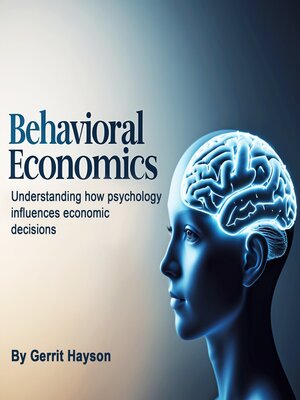Behavioral Economics
audiobook (Unabridged) ∣ Understanding How Psychology Influences Economic Decisions
By Gerrit Hayson

Sign up to save your library
With an OverDrive account, you can save your favorite libraries for at-a-glance information about availability. Find out more about OverDrive accounts.
Find this title in Libby, the library reading app by OverDrive.



Search for a digital library with this title
Title found at these libraries:
| Library Name | Distance |
|---|---|
| Loading... |
This audiobook is narrated by a digital voice.
For decades, traditional economic theory operated under a fundamental assumption that seemed logical enough: humans are rational actors who make decisions based on complete information, consistent preferences, and the goal of maximizing their personal utility. This theoretical foundation, known as the rational choice theory, painted a picture of economic actors as calculating machines, weighing costs and benefits with mathematical precision before making optimal choices.
Yet anyone who has ever made an impulse purchase, chosen the familiar brand over a cheaper alternative, or felt buyer's remorse knows that human decision-making is far more complex and seemingly irrational than these models suggest. The emergence of behavioral economics as a field represents a revolutionary shift in how we understand economic behavior, one that acknowledges the profound influence of psychology on our financial choices.
The roots of behavioral economics can be traced back to the 1970s when psychologists Daniel Kahneman and Amos Tversky began challenging the assumptions of traditional economic theory. Their groundbreaking work demonstrated that people systematically violate the principles of expected utility theory, making choices that appear irrational when viewed through the lens of classical economics. Rather than dismissing these deviations as anomalies or errors, Kahneman and Tversky recognized them as predictable patterns that could be studied and understood.







